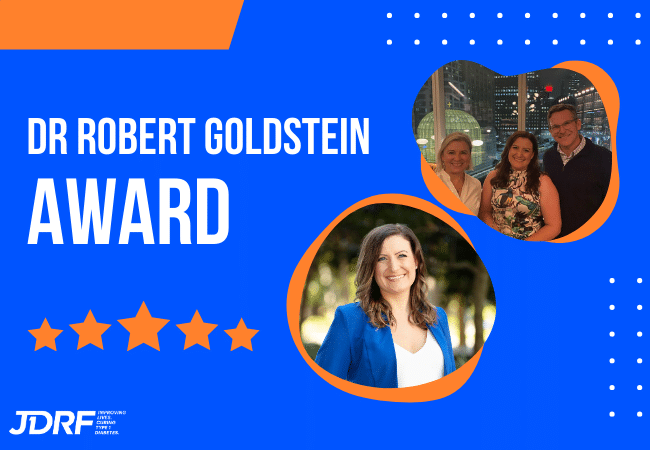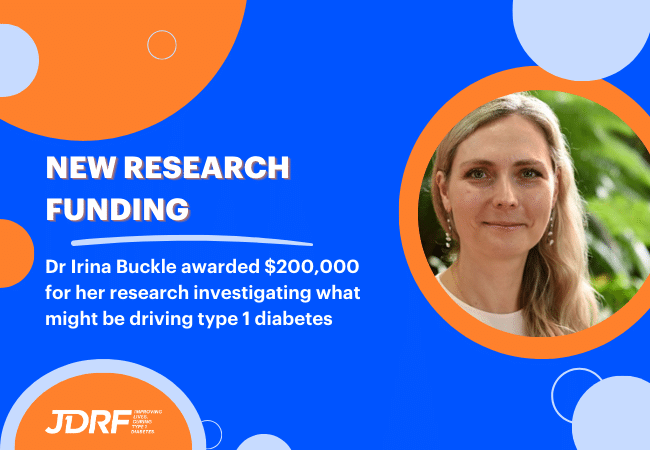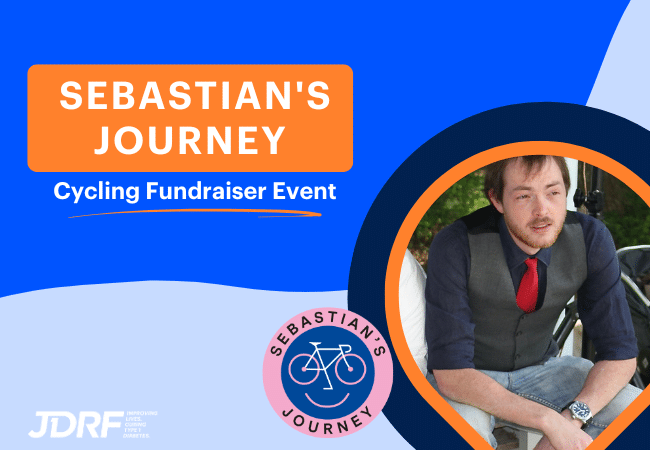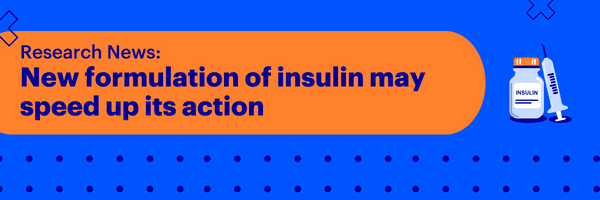Spotlight on peer support mentor Sally Wooden
Sally Wooden’s story explores the value of community and how JDRF Australia’s Peer Support Program boosts the mental health of newly diagnosed families.
Sally Wooden describes the first months after her daughter Riley’s type 1 diabetes (T1D) diagnosis as the worst in her life. Diagnosed with T1D at 8 years old, Riley, like many others, was also diagnosed with a secondary auto immune disease a month later. In her case it was Coeliac.
Over five years, Sally has come to terms with the overwhelming and exhausting blow T1D dealt not only to Riley, but to herself as a parent and carer as well.
“When I learnt I’d have to balance insulin in Riley’s body, just to keep her alive, she transformed from a robust child into a fragile china doll whose life depended on my actions 24/7,” Sally says.
As a parent, Sally was grieving the loss of a carefree life for her child, trying to learn the complexities of T1D, trying to adapt to this new life, all whilst enduring continuous sleepless nights. She was emotional and exhausted.
These feelings are likely familiar for most parents and carers coming to terms with a new T1D diagnosis in the family. Parents of the newly diagnosed often report striving to live an ordinary life, yet feeling quite differently about their reality. Many feel as though they must always be on guard and struggle to let go of a previously carefree lifestyle.
Seeking and giving support
A couple of months after diagnosis, Sally realised that the best way to support her family would be to connect with other families more experienced with T1D. She attended a JDRF One Walk event and found a family who became their Florence Nightingale.
“They held our hands, gave us guidance and showed us that we would get on top of this and that we would be OK. They are still our dear friends today,” Sally reflects.
Three years post diagnosis, Sally looked at Riley (now 11 years old) and reflected on how well she was managing to live with her T1D. She looked back at how far they had come, how much they had learned, and suggested to her that it was time they helped others.
She had heard of the JDRF Peer Support Program and knew they were now ready to take on this role.
Sally and Riley have now been peer support mentors to more than 15 families and show no signs of slowing down.
“It’s so important for newly diagnosed families to have a support system and know they can call someone, even if they don’t need to. I’m honoured I can provide that very worthwhile comfort for a family in those dark post diagnosis months.” Sally says.

Some families Sally supports get in contact often, and some only at the beginning but she believes all receive the following benefits from her support:
- They can speak to someone who cares, who has been in their shoes, speaks their language and knows how they feel. They are not alone in their journey.
- They can see a family that lives with T1D and they can see how well they manage their new normal. They are reassured that T1D will not always be at the forefront of their life. This gives them hope for their future.
- She shares ‘tricks of the trade’ with them, for example games they play when blood glucose is high, food ideas, T1D industry information, products they use and what they did in unfamiliar situations like school camp, sleepovers and birthday parties.
Managing mental health
In celebration of National Diabetes Week, here are Sally’s top three tips for looking after your mental health in the face of a new diagnosis with diabetes in your family:
- Don’t expect to get it right all the time, it’s an unrealistic and unfair expectation on you and your TID child. Be proud of your good days and forgive yourself on the bad ones.
- When you and your family are tired from a broken night’s sleep, remember to be kind to each other and catch up on your sleep with some early nights.
- Get BGLs down before bedtime by getting the whole family to play a game of ‘in the dark hide and seek’ around your neighbourhood – some benefits of this include: bonding, laughing, lowering BG (hopefully leading to good sleep) and release of exercise endorphins.

To learn more about type 1 diabetes and mental health this National Diabetes Week, check us out on Facebook or Instagram.
If you’d like to follow in Sally’s foot steps and become a JDRF Peer Support Mentor or participate in our Peer Support Program, you can learn more here.




